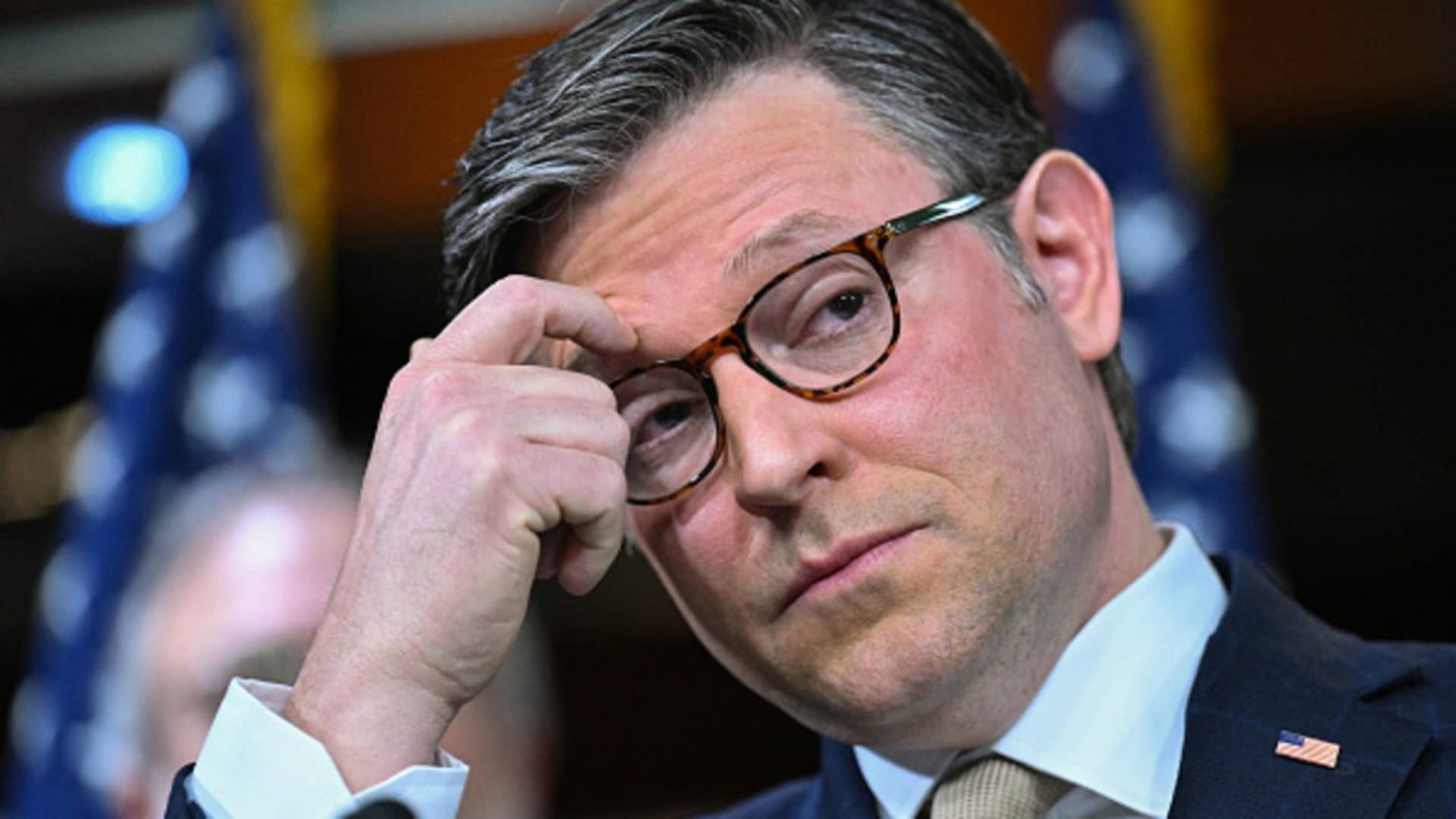In a significant political maneuver, the House of Representatives has taken control of a major bill initially championed by former President Donald Trump. This decision follows a narrow Senate passage marked by intense negotiations. Republican Speaker Mike Johnson now faces challenges from within his party, with some members openly opposing the Senate’s version of the legislation. The path forward remains uncertain amid concerns over attendance and differing opinions regarding critical funding aspects.
| Article Subheadings |
|---|
| 1) Political Dynamics Shift in the House |
| 2) Opposition from Within the GOP |
| 3) Obstacles to Voting on the Bill |
| 4) The Financial Implications of the Bill |
| 5) The Next Steps for Legislative Action |
Political Dynamics Shift in the House
The House of Representatives has recently seized the legislative agenda surrounding a critical bill tied to former President Donald Trump. After a tense Senate vote concluded with a narrow 51-50 margin, with Vice President JD Vance breaking the tie, the legislation has now moved to the House. Speaker Mike Johnson has a unique challenge ahead as he navigates through various opinions among House Republicans. The outcome of this legislative process will have substantial implications not only for the party but also for broader national policy. The bill includes significant funding strategies that have sparked extensive debate.
Opposition from Within the GOP
Several House Republicans have already made their disapproval of the Senate-approved version known. Notably, Rep. Andy Ogles from Tennessee vehemently criticized the Senate bill, labeling it a “dud” and advocating for a return to the more robust House version passed several weeks ago. Other members, including Rep. Ralph Norman from South Carolina, have also expressed reservations, raising concerns about the direction in which their party is heading. With an evident divide among party members, Speaker Johnson must tread carefully to reconcile these differences before a vote is conducted. Additionally, Republican hardliners are cautious about the implications of the bill on fiscal conservatism, with fears that the Senate version reallocates funds in a manner that may not align with their principles.
Obstacles to Voting on the Bill
Circumstances surrounding potential voting on the House floor could complicate Johnson’s path forward. The Capitol is facing adverse weather conditions, with strong storms causing flight cancellations for several members returning to Washington. As House members are prohibited from voting remotely under current rules, any absence can significantly influence the outcome of the vote. This attendance challenge adds another layer of complexity to the already fraught political atmosphere. Republican leadership recognizes that with every vote costing them significant quorum, it is essential to ensure their members are present when the final vote is called. Addressing these logistical issues could prove to be as critical as obtaining political consensus.
The Financial Implications of the Bill
The financial implications of the legislation are a central point of contention among House Republicans. The Senate version of the bill proposes a $5 trillion increase in the debt ceiling, notably higher than the $4 trillion increase previously passed by the House. Additionally, the bill is projected to add more than $3.9 trillion to the national debt, raising alarm among fiscally conservative members who are wary of increasing the deficit. They have voiced concerns regarding deeper cuts to Medicaid and how these changes would impact their constituents. The ramifications of such financial decisions are significant as they relate to broader economic stability and public welfare.
The Next Steps for Legislative Action
As the House prepares to address this pivotal piece of legislation, time is of the essence. While Trump previously set a self-imposed July 4 deadline, more recent communications suggest a softer stance on this timeline. Nevertheless, the House must act strategically, as any delays could undermine Republican interests and legislative goals. The next week will be crucial as House members debate, amend, and possibly vote on the Senate’s iteration of the bill. Johnson’s leadership will be tested as he attempts to unify his conference and present a coherent approach to this complex legislative issue.
| No. | Key Points |
|---|---|
| 1 | The House has taken control of the bill initially backed by former President Trump after a narrow Senate vote. |
| 2 | Multiple Republican members have registered opposition to the Senate-approved version, raising concerns about fiscal responsibility. |
| 3 | Adverse weather conditions could affect attendance during the crucial voting process in the House. |
| 4 | Significant financial implications associated with the bill have sparked debate regarding increases in national debt and Medicaid funding cuts. |
| 5 | Future legislative actions will be essential as the House seeks to address and potentially amend the Senate’s version of the bill. |
Summary
The evolving political landscape surrounding this major piece of legislation underscores the challenges faced by Republican leadership in the House of Representatives. As opposition from within and external factors concerning voter attendance threaten to complicate the legislative process, the path forward remains fraught with uncertainty. The outcome of this bill will not only shape fiscal policy but also the relationship within the GOP as they work to navigate differing views and priorities.
Frequently Asked Questions
Question: What is the purpose of the bill currently in the House of Representatives?
The bill aims to facilitate a significant increase in the national debt ceiling and involves various funding provisions, including Medicaid adjustments that are now under intense scrutiny.
Question: How does the Senate version of the bill differ from the House’s earlier proposal?
The Senate version proposes a higher increase in the debt ceiling and deeper funding cuts compared to the House’s earlier version, which has raised concerns among fiscal conservatives within the party.
Question: What are the risks associated with the attendance issue for House Republicans?
If some members cannot attend to vote due to external factors like weather delays, the party risks losing essential votes, potentially jeopardizing the passage of the bill on a party-line vote.


